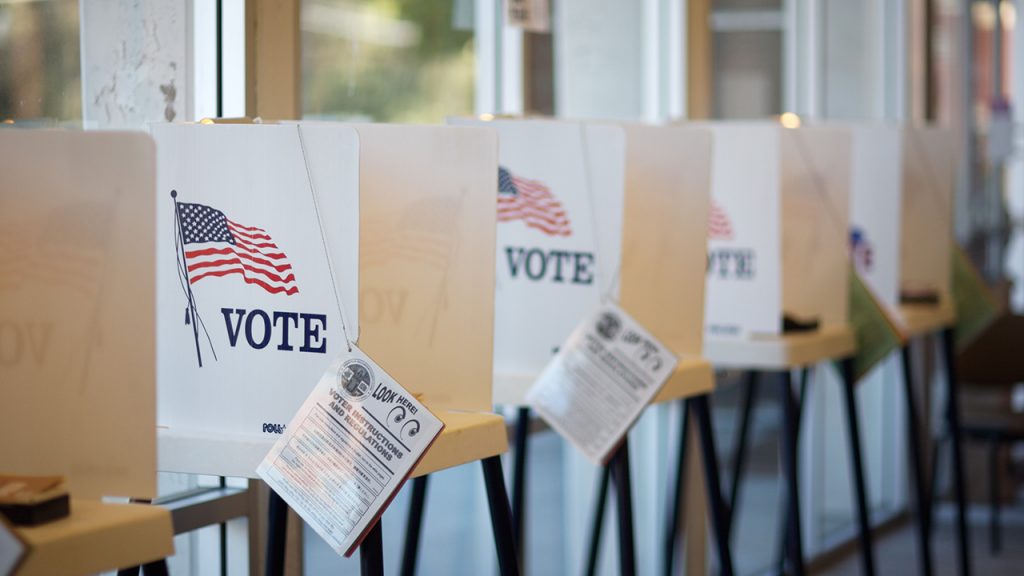Detroit polling locations largely not accessible to disabled voters, audit finds
Detroit Disability Power found 84% of voting locations in Detroit and in 15 suburbs were not fully accessible on Election Day last year.

In 2022, Detroit Disability Power worked with the Carter Center to gauge how accessible Metro Detroit’s polling sites were for disabled voters.
The group found 84% of voting locations in Detroit and in 15 suburbs were not fully accessible on Election Day.
“It’s not surprising based on our experiences as disabled voters,” says DDP Executive Director Dessa Cosma, who uses a wheelchair.
She says there are a variety of barriers disabled voters face when they try to vote.
“Things like steps going into polling locations, or no wheelchair height voting booths, or nonworking accessible voting machines.”
The groups also found election workers were not prepared to serve voters with disabilities.
“I have a right to vote in person, independently and privately just like anybody else.” – DDP Executive Director Dessa Cosma
Cosma says, many workers are not trained to set up and operate the accessible voting machines people with visual and reading impairments rely on.
“They may not be plugged in. They may not be turned on. They may not have the right paper to then print the ballot and then put into the tabulator like other ballots would be put in. And so they become virtually useless.”
Cosma says she herself has gone to vote and found the location didn’t have wheelchair height voting booths.
“I’ve asked poll workers where I can vote, and sometimes they’re stumped. And sometimes they haven’t thought about [it].
“It doesn’t feel good as a voter,” she said. “But more importantly, I have a right to vote in person, independently and privately just like anybody else.”
People with disabilities are guaranteed a right to vote privately and independently by federal laws including the Voting Rights Act, the Americans with Disabilities Act and the Help America Vote Act.
In Michigan, the responsibility for choosing voting locations, implementing accessibility plans and training staff lies with the clerks.
“And most of these solutions don’t cost any money,” Cosma says. “It just requires some intentionality and some forethought.”
Detroit Disability Power says it has sent its poll report to the clerk in Detroit and the other cities it audited. It’s offering to work with cities to “operationalize” its recommendations to make polls accessible for upcoming elections.
Trusted, accurate, up-to-date.
WDET strives to make our journalism accessible to everyone. As a public media institution, we maintain our journalistic integrity through independent support from readers like you. If you value WDET as your source of news, music and conversation, please make a gift today.
